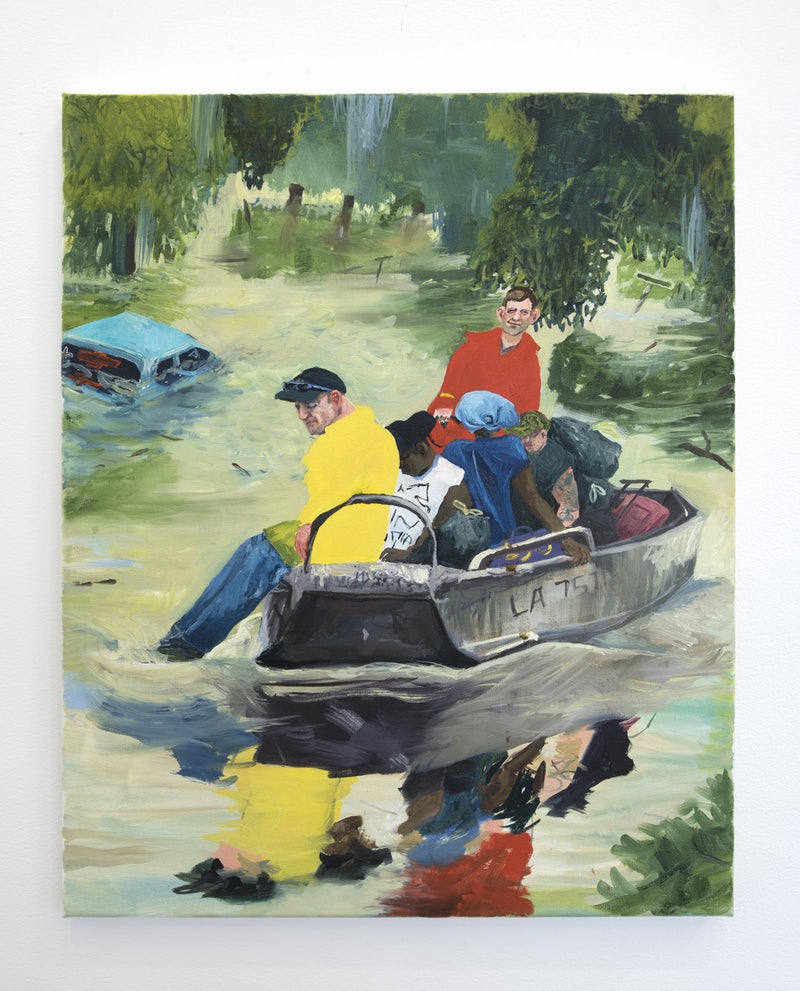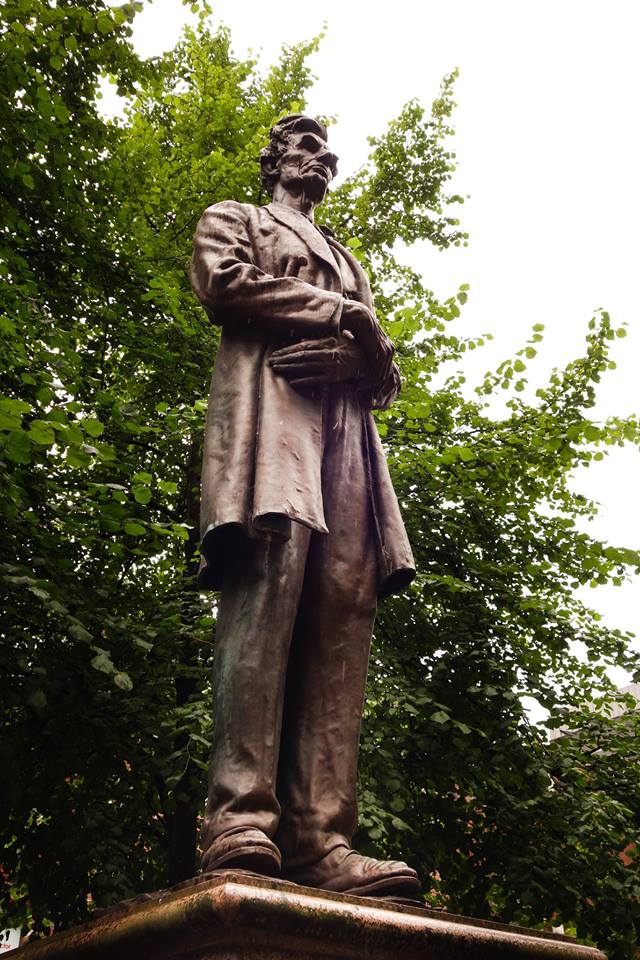Culturewatch
Notes From the Sisterarchy
Post-Weinstein Facebook posts by Laurie Stone…
Feasting on a Fiend
And so, the monster that is Harvey Weinstein has been banished, and soon, perhaps, he will be incarcerated. Troops of celebrities have rushed to condemn him, some claiming ignorance about his m.o. and nearly all expressing horror. It’s been a long time since the word disgusting was used by so many men who, if the tropes of pornography are to be believed, harbor fantasies very close to what Weinstein acted upon. I suspect that the conflict between what men and women feel sexually (which isn’t a single thing) and what we feel politically (which is) reflects a climate of anxiety amplified by social media and by newspapers and TV shows that have everything to gain from scandalizing. The result has been a two-edged sword. There’s a real struggle against sexual oppression and a more ambiguous fostering of uneasiness about sex that is potentially as oppressive as the situation it is meant to address.
Power Trips & A Lover’s Transport
“Everybody fucking knew” about Harvey Weinstein’s predatory side says screenwriter Scott Rosenberg in a self-lacerating post in which he called out complicit Hollywood. Rosenberg blamed himself and bigger players for their not-knowing stance toward the monstrous mogul. Rosenberg’s rant on the low motives that kept all of them on Weinstein’s team seemed spot on, but as I read him last night, I found myself resisting his larger claims for Weinstein’s cultural import:
Eminen and Trump: Fratricide in the White Imagination
The figure of Slim Shady haunts the moldering corridors of the Midwest. In every town you’ll meet them–tall, pale young men in hoodies on the margins of the mainstream economy. They roam the busted landscape of blue-collar America, enacting private sagas of self-destruction in search of some lost myth of unsullied masculinity.
The Shark Has Pretty Teeth Dear
I’m an inveterate watcher of ABC’s popular “Shark Tank.”
Stuart Hall’s Legacy (Part One)
Cultural Studies 1983 (2016) Stuart Hall; Duke University Press
Familiar Stranger: A Life Between Two Islands (2017), Stuart Hall, (Editor, Bill Schwarz); Duke University Press
Resistance Through Rituals (1976) S. Hall and T. Jefferson; Hutchinson & Co.
“Subcultural Conflict and Working Class Community” Phil Cohen in Culture, Media, Language (1981) edt. by S. Hall, D. Hobson, H. Lowe, P. Willis; Hutchinson & Co.
Meantime (1984) Directed by Mike Leigh
A Running Jump (2012) Directed by Mike Leigh
“Handsworth Revolution” on the lp Handsworth Revolution (1978) Steel Pulse
“Sonny’s Lettah” on the lp Making History (1983) Linton Kwesi Johnson
“Riots, Rhymes and Reason” Linton Kwesi Johnson at www.lintonkwesijohnson.com
Notes on a Diabetic Body
Sugar Time
I’m alone one night watching Field of Dreams on TV. As my blood sugar drifts down, the movie becomes more and more profound. Death isn’t the end! We’re too bounded by reason to catch the shafts of light all around us! I look up from the screen at the living room. The bookcase is swaying, the arm chair mumbling quietly to itself. My hands are attached to long, rubbery strips, and the hairs on my arms, light brown and silky, are beautiful and mysteriously meaningful. A drop of sweat runs down my forehead, splashes onto my thigh, and ripples out on the surface of a pool. And I think—slowly and with a dangerous smile—I’m having a really low blood sugar.
Hey Ho, Let’s Go
One critic said that British punks sang anger, Americans, pain. But punk was more than emotion, more than the sense of humor the Ramones brought to the mix, more than the adrenaline rush of a live show, more than the aura of sex around everything.
La La Land: The Loneliness of The Long-Distance Egotist
The fetishization of the past is inevitable in a society where virtually no work of pop culture goes unmemorialized and hack creatives can shamelessly co-opt the iconography of cultural landmarks to shine reflected glory on their anemic pastiches. In La La Land, Damien Chazelle really really really wants you to think about classic Hollywood musicals, but not too closely.
Fit to Print
Last week, The New York Times ran a strange story about Louis C.K., whose comedy walks an artful line between insight and indecency. The piece cited “unsubstantiated internet rumors of his sexual misconduct with female comics.” I call this story strange because of that word–unsubstantiated. Substantiation is the essence of good reporting. You don’t print what you can’t pin down. But at the Times, this standard is changing, at least when it comes to allegations of sexual abuse. Hearsay is permissible, as long as women are doing the saying.
“Wild and Blue”: Celeste Dupuy-Spencer’s Populist Visions of America
Celeste Dupuy-Spencer has been painting up a storm. The artist told art blogger Brienne Walsh she usually takes 6 months to a year and a half to finish a picture but for “Wild and Blue,” her first solo show in New York (which runs until October 7th at the Marlborough Contemporary Gallery), she only had the summer and the “paintings just got ripped out of me.” More than a few of her pictures hint at hurricane weather. And Dupuy-Spencer, who’s lived in New Orleans (though she’s based in L.A. now), knows from floods of feeling. Pictures like Cajun Navy and Lake Pontchartrain look back to Katrina’s aftermath but are all up in this time of climate change.

 Dupuy-Spencer is “painting the news” as one reviewer has written in New Republic, citing her picture of the Confederate monument torn down last month in Durham, which “amounts to a kind of monument to the search for social justice.”
Dupuy-Spencer is “painting the news” as one reviewer has written in New Republic, citing her picture of the Confederate monument torn down last month in Durham, which “amounts to a kind of monument to the search for social justice.”
Breaking Down Wisdom Machines (& That Shuddering Fridge)
John Ashbery’s death reminded your editor of Philip Levine’s comments on Ashbery’s wit. Not to worry, I’m aware Ashbery and Levine were something other than brothers in verse but bear with me…
Confessions of an Unwitting Disciple of Meir Kahane[1]
Hay sólo dos países: el de los sanos y el de los enfermos/por un tiempo se puede gozar de doble nacionalidad/pero, a la larga, eso no tiene sentido. -Enrique Lihn
A brother-writer has been pumping iron and taking boxing lessons ever since Trump won. He’s Jewish (with a Latin tinge).
An oasis of fascism in a desert of liberalism…
Mancunian Lincoln

It seems like maybe we could all use a good story about a civil war statue, a good story about an American President, and a good story about the power of the common people against the rich and powerful, so I’m going to start with this one. It’s probably for the best that you’re reading this here because I haven’t managed to tell this story in person without crying.
On Taking Down the Monuments to the Confederacy
To which our historically savvy president responds: “Why not the monuments to Washington and Jefferson as well?”
Every Picture Tells a Story
In the summer of 1970, at about the time of the release of her novel Play It As It Lays, Joan Didion spent a month driving through the Gulf Coast states with her husband John Gregory Donne hoping to discover a magazine piece to write.